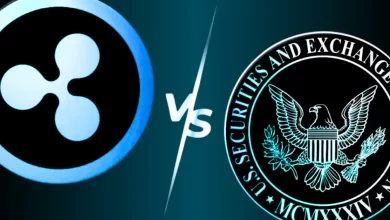
The US Needs a ‘Rational Regulatory Framework’ Stuart Alderoty – Chief Legal Officer of Ripple – recently gave his two cents on the court victories secured by the blockchain enterprise in its legal battle against the US Securities and Exchange Commission (SEC) and the benefits they brought to XRP.
According to him, the landmark win from mid-July gives the asset “clarity in the US” and is now uniquely classified as a non-security in the world’s biggest economy. Recall that a federal judge ruled that Ripple’s XRP sales from years ago did not constitute an offer of investment contracts. Most recently, the magistrates dismissed the SEC’s wish to appeal the decision, granting the crypto firm another victory on its account. Alderoty maintained that the US authorities still need to implement comprehensive rules on the local cryptocurrency industry despite Ripple’s partial win.
He noted the progress in that field in regions like Singapore, Japan, Dubai, and Brazil, regretting that America has not yet acknowledged the sector’s potential: “In the US, unfortunately, we’ve lost our way, and we’ve lost our way because we have politics and power being elevated over sound policy, meaning we have certain agencies who are fighting over who is going to get to control from a regulatory perspective the technology rather than satisfy what the right policy outcome is.” Is XRP Poised for a Rally?
The coin’s substantial price surge shortly after Ripple’s court wins gave investors hope that a further increase might be on the horizon. Multiple analysts laid out forecasts in the previous months envisioning XRP to skyrocket to new all-time high levels, such as $10, $27, $43, or even the ridiculous $500 in the following years. Some modest predictions put the asset trading at over $1 should it overcome certain crucial resistance marks. We also asked ChatGPT whether the next bull run for XRP could occur next year. The AI-powered language model claimed this could indeed happen if various factors, such as the outcome of the Ripple vs. the SEC trial, regulatory developments, and favorable macroeconomic conditions, were on the cards.





